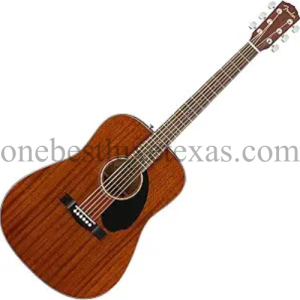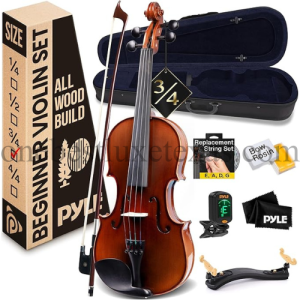Uncategorized
Choosing Between Traditional and Digital Musical Instruments
Choosing Between Traditional and Digital Musical Instruments
When it comes to selecting a musical instrument, musicians and enthusiasts often face a key decision: should they go with traditional instruments, which have been refined over centuries, or embrace the cutting-edge technology of digital instruments? Both types of instruments offer unique advantages, and the choice between them depends on a variety of factors, from sound preferences to practical considerations like portability, cost, and learning curve.
At Onebestluxetexas, we understand how important it is to make an informed choice, whether you’re a beginner or an experienced musician. In this guide, we’ll compare traditional and digital musical instruments across several key aspects to help you determine which is the best fit for your needs.
1. Sound Quality
Traditional Instruments
Traditional acoustic instruments, such as pianos, guitars, violins, and drums, produce sound through natural physical means. The vibrations of strings, the movement of air through wind instruments, or the resonating body of a drumhead all contribute to their unique tonal quality. These instruments are prized for their organic sound, which many musicians and listeners consider richer, warmer, and more nuanced.

For example:
- Acoustic Guitars: Known for their full, resonant sound, the tone of an acoustic guitar is shaped by the wood and construction, making each instrument unique.
- Grand Pianos: The resonance from the strings and soundboard creates a rich, dynamic tone that digital pianos may struggle to fully replicate.
Digital Instruments
Digital instruments, like electric guitars, synthesizers, and digital pianos, generate sound electronically, using digital samples, synthesizers, or sound processors. While they may not always match the warmth and depth of traditional instruments, many modern digital instruments are capable of producing an impressive range of sounds and effects that can mimic traditional instruments quite well.
For example:
- Digital Pianos: High-quality digital pianos use sampled sounds of real pianos, providing an accurate representation of the grand piano’s tone, but some musicians may feel the sound lacks the subtlety and resonance of a traditional piano.
- Synthesizers: Synthesizers can emulate any number of instruments and generate unique sounds that are impossible to create with traditional instruments.
While digital instruments may not completely replicate the authenticity of traditional instruments, they often provide the flexibility to create a wide array of sounds, making them a favorite in contemporary music production.
2. Portability and Practicality
Traditional Instruments
One of the main challenges of traditional instruments is their size and portability. Acoustic instruments, like grand pianos, cellos, and drums, are often large, bulky, and cumbersome to transport. This can be an issue if you perform live or need to practice in different locations.
For example:
- Acoustic Guitars are relatively portable, but larger instruments like grand pianos and drum kits require significant effort and space for transport and setup.
Digital Instruments
Digital instruments have a significant advantage when it comes to portability. Since most of them are powered by electronics, they are often smaller and lighter than their traditional counterparts. This makes them ideal for musicians who need to travel or practice in tight spaces.
For example:
- Electric Guitars: These are generally lighter and more portable than acoustic guitars, and with smaller amps, they can easily be transported for gigs or practice.
- Digital Keyboards: Digital pianos and synthesizers can be compact and lightweight, with models available that are easily transportable, offering great convenience for live performances or rehearsals.
If portability and practicality are important factors in your decision, digital instruments will likely be the better option, especially for musicians who travel frequently or need an instrument that is easy to move around.
3. Learning Curve
Traditional Instruments
Traditional instruments typically have a steeper learning curve due to their complex playing techniques and the need for physical practice. Instruments like the violin or flute require precise finger placement and breath control, while playing a piano demands coordination between both hands and feet.
However, once mastered, traditional instruments provide a deep sense of satisfaction and connection to music. Many musicians enjoy the challenge and reward of developing technical proficiency on an acoustic instrument.
Digital Instruments
Digital instruments can be easier to learn, especially for beginners, thanks to built-in features that aid learning. For example, digital pianos may have light-up keys or educational apps that guide students through songs. Additionally, synthesizers often come with preset sounds and effects, so beginners can start creating music without much technical knowledge.
For example:
- Digital Pianos: Many models come with built-in learning tools such as a song library, metronome, and even step-by-step tutorials for beginners.
- Synthesizers: Entry-level synthesizers are user-friendly, often designed to make it easy for users to experiment with sound and effects.
If you are a beginner, digital instruments might offer a smoother learning experience due to their interactive features and user-friendly interfaces. However, traditional instruments might provide a more rewarding and immersive experience for those willing to invest the time in mastering their technique.
4. Cost
Traditional Instruments
The price of traditional instruments can vary greatly depending on the quality, brand, and materials used. For example, a high-end grand piano or vintage violin can be very expensive, but entry-level models are often more affordable. On the other hand, the cost of maintenance and repair for traditional instruments can add up over time, especially for high-maintenance instruments like woodwind instruments or stringed instruments.
Digital Instruments
Digital instruments tend to be more affordable in general. Entry-level models, like digital pianos or electric guitars, can be significantly less expensive than their traditional counterparts. Additionally, digital instruments often require less ongoing maintenance and care compared to acoustic instruments, making them more budget-friendly in the long run.
However, it’s important to note that high-end digital instruments, such as professional synthesizers or premium electric guitars with advanced digital features, can also be quite pricey.
In terms of initial cost, digital instruments often come out ahead, offering affordability with a wide range of options. However, if you are willing to make a long-term investment, traditional instruments may offer more lasting value.
5. Versatility and Sound Manipulation
Traditional Instruments
Traditional instruments are limited in the sounds they can produce. For instance, a violin produces a distinct, fixed tone, and while it can be altered by the performer’s bowing techniques, it can’t be easily modified to sound like a different instrument or genre. However, many musicians appreciate the inherent limitations of traditional instruments, as they encourage greater creativity and expression within those boundaries.

Digital Instruments
One of the biggest advantages of digital instruments is their versatility. Digital instruments, especially synthesizers and electric instruments, can produce an endless variety of sounds by manipulating waveforms, filters, and effects. This opens up a world of possibilities for musicians, allowing them to experiment with various genres, styles, and sound effects.
For example:
- Synthesizers: Able to emulate everything from traditional instruments to futuristic sounds, synthesizers provide musicians with unparalleled creative freedom.
- Electric Guitars and Effects: With the right pedals and processing equipment, an electric guitar can produce sounds ranging from clean, classical tones to heavy, distorted riffs.
If you’re looking for an instrument that allows for a high level of customization and experimentation, digital instruments may be the way to go. However, traditional instruments provide an unmatched opportunity for pure musical expression within the bounds of their specific sounds.
Conclusion
Ultimately, the choice between traditional and digital instruments depends on your preferences, goals, and musical style. Traditional instruments offer rich sound quality, timeless craftsmanship, and a deep connection to the history of music. They may require more effort to learn and maintain but provide a rewarding musical experience for those willing to invest in their development.
On the other hand, digital instruments offer flexibility, portability, ease of use, and an array of sound possibilities, making them ideal for musicians seeking to experiment or perform in modern settings. Whether you are drawn to the authenticity of a traditional instrument or the innovation of a digital one, at Onebestluxetexas, we have a wide range of options to suit your musical journey. Explore our collection and choose the perfect instrument for your needs today!

